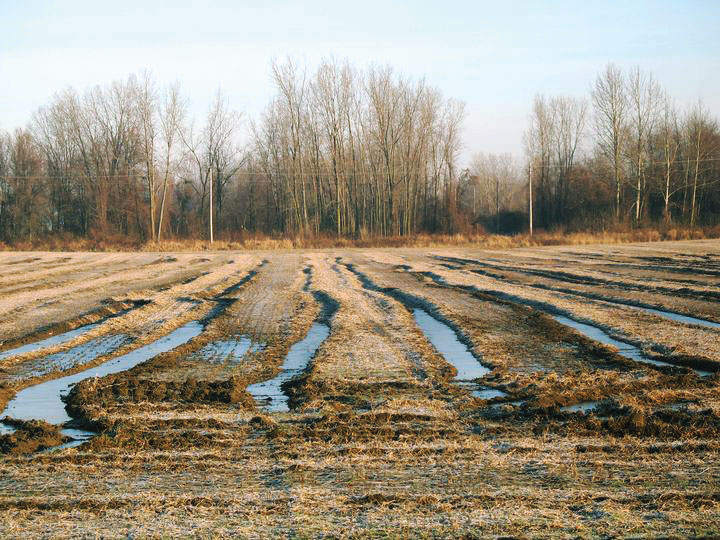
Wet winter conditions are causing delays
With above average rainfall around the Ozarks this winter, most producers are experiencing delays in their field preparations and planting due to mud – and unfortunately, more wet weather complications could be on the way.
“Soil moisture levels remained unusually high across a large portion of the Missouri and Mississippi River Basins at the end of January, and set the stage for a significant spring flood season,” according to a weather report from Dr. Patrick Guinan, state climatologist with the University of Missouri Extension.
February brought more rain, along with sleet and snow, leaving the soil in many places saturated and difficult to access for spring planting.
“Right now, we are waiting for fields to dry up so we can get in,” Jill Scheidt, agronomist field specialist with MU Extension, said.
One of the common crops in the Ozarks that is seeing complications from the wet weather is wheat.
Due to the rain and field conditions, Scheidt explained a lot of wheat didn’t get planted.
“If it did get planted, some might be a little low on nitrogen if fields were too wet to make a fall nitrogen application,” she said.
Overly wet soil does not work well for tractors and planting equipment. Trying to drive a tractor through a muddy field to prepare seedbeds can create compaction issues, which will lead to poor quality seedbeds with large, uneven clumps of soil that do not facilitate consistent seed coverage throughout the field.
Muddy fields can also cause tractors and equipment to get stuck, causing exteive damage to fields, in addition to being a headache no producer wants to deal with.
A couple of strategies include simply trying to wait it out and let the fields dry, which can be a bit of a gamble, or consider either a minimum tillage plan, only performing tillage operations that are absolutely necessary, or a no-tillage plan.
If producers need to apply fertilizer, it is best to wait until conditions are more favorable, if possible, for the best results. This will help to avoid soil compaction and ammonia loss, which in turn leads to less of a return on fertilizer investments.
For producers who are dealing with wet soil challenges, the local Extension office is a valuable resource for soil tests, assistance with management plans and, in some locations, renting no-till equipment.





